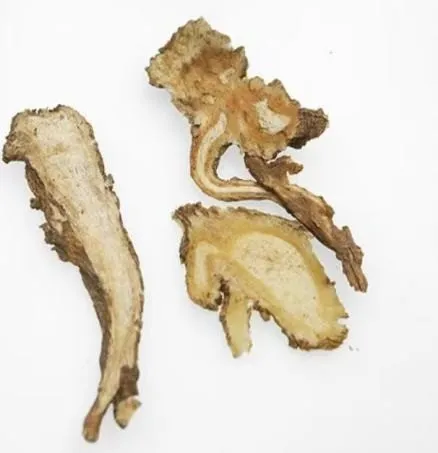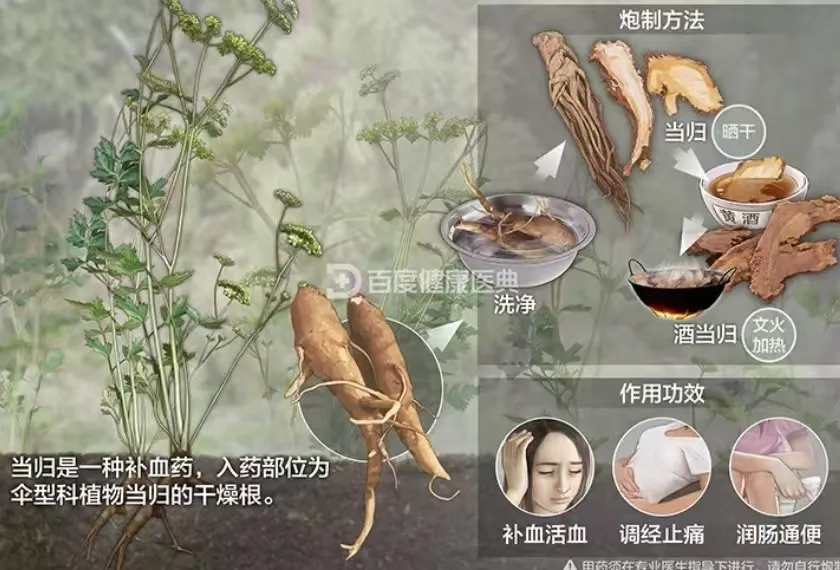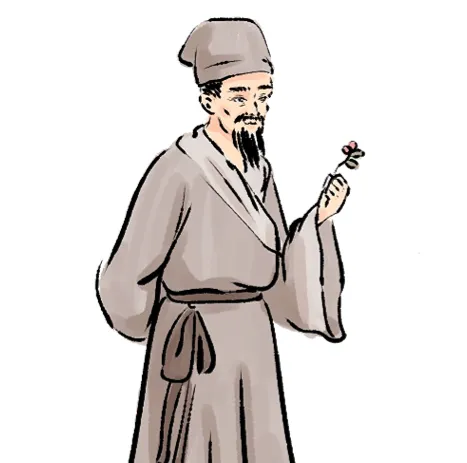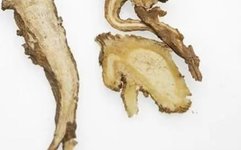Angelica Sinensis
Angelica sinensis (Oliv.) Diels, commonly known as Dang Gui (当归), is a perennial herbaceous plant belonging to the Apiaceae family. The root is cylindrical, branched, and yellow-brown; the stem is erect, greenish-white or purplish, with longitudinal grooves; the leaves are pinnately divided, purple or green, and ovate; the flowers are white, with flower stalks densely covered in fine hairs, and the petals are long-ovate, with a conical base to the flower column, blooming from June to July. The fruit is oval to ovate, with pale purple winged edges, maturing from July to September.

Source of Dang Gui:
According to the Compendium of Materia Medica (《本草纲目》): “In ancient times, when a man married, it was for the purpose of having offspring. Dang Gui regulates the blood and is an essential herb for women, symbolizing the longing for a husband, hence the name Dang Gui.” It is primarily produced in the southeastern part of Gansu, with Min County being the most abundant and highest quality, followed by Yunnan, Sichuan, Shaanxi, Hubei, and other provinces, all cultivated.Uses of Dang Gui: Decoction for Internal Use: Dang Gui is classified as a blood-tonifying herb, so when taking Dang Gui, patients need to decoct it in water to fully extract the active components, thereby exerting its medicinal effects. Before decocting, the herb should be placed in a container with an appropriate amount of water, and then decocted. Soaking in Alcohol: Dang Gui can also be soaked in alcohol. Slices of Dang Gui are placed in alcohol and sealed for about 20 days before consumption. Dang Gui wine has the effects of tonifying Qi and nourishing blood, and regulating menstruation, which can assist in treating menstrual irregularities and injuries. Cooking Porridge: Dang Gui can also be cooked with rice, glutinous rice, or black rice to make porridge, which has the effects of tonifying Qi and nourishing blood, strengthening the spleen and stomach, and can assist in treating Qi and blood deficiency, and spleen and stomach weakness..


Precautions for Dang Gui:
The contraindications for Dang Gui mainly include individuals with heavy menstrual flow, Yin deficiency with internal heat, and loose stools. Common side effects in clinical practice include drowsiness, fatigue, body heat, dry mouth, nausea, vomiting, headache, and decreased blood pressure. Dang Gui should not be taken blindly; it should be prescribed by a qualified physician based on the patient’s condition and appropriate dosage..
Source: Pharmacy Department
Editor: Publicity Department

